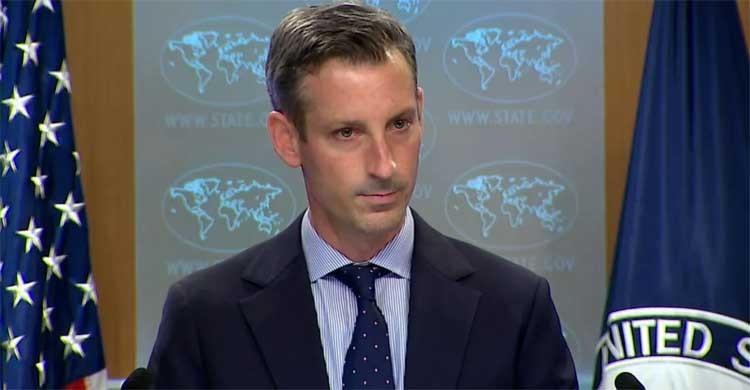US announces $26m more in assistance for Rohingyas, host communities
08 March 2023, 12:20 pm | Updated: 07 April 2025, 11:50 am

The United States has announced around USD 26 million in additional humanitarian assistance for Rohingya refugees in Bangladesh and the region, for those in Myanmar affected by the ongoing violence, and for the communities hosting refugees from the country.
“With this new funding, our total assistance for those affected by the Rakhine State and Rohingya crisis has reached nearly $2.1 billion since August of 2017, when over 740,000 Rohingya were forced to flee to safety in Cox’s Bazar, Bangladesh,” US Department of State Spokesperson Ned Price said in a regular media briefing in Washington.
This new funding would allow USA’s humanitarian partners to continue providing lifesaving assistance to affected communities on both sides of the Myanmar-Bangladesh border, including nearly 980,000 Rohingya refugees hosted by Bangladesh, some 740,000 of whom arrived in the months following August 2017 when they were forced to flee genocide, crimes against humanity, ethnic cleansing, and other horrific atrocities and abuses perpetrated by Myanmar’s military in Rakhine State, he said.
This funding will also provide assistance to nearly 540,000 Bangladeshi host community members and to others affected by ongoing violence in Myanmar.
The United States appreciated the generosity of the Government of Bangladesh and other nations and the hospitality of the Bangladeshi people in hosting Rohingya refugees, especially now that “we are in the sixth year of this protracted crisis,” he added.
“We remain committed to working towards durable solutions to the crisis, and we’ll continue to partner with the Government of Bangladesh, the Rohingya community, host communities, and people inside Burma to ensure a coordinated and well-supported response to this humanitarian crisis,” Ned Price said.
The international community, he said, must remain steadfast in their commitment to alleviating the suffering of the world’s most vulnerable people, including through the Rohingya crisis response.






















